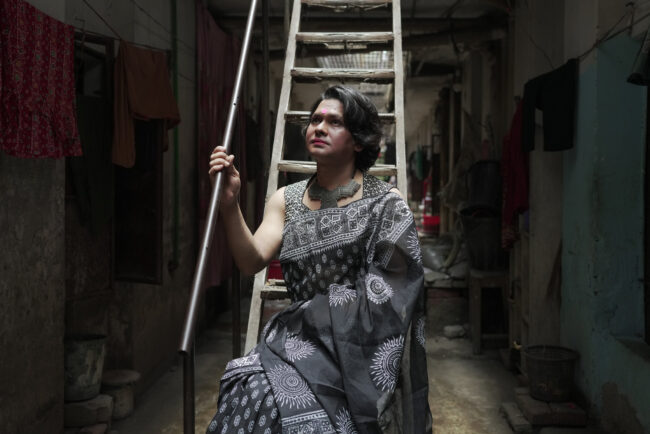DHAKA, BANGLADESH — Early this year, dozens of men stormed the gate of a safe house for third-gender people.
Among the attackers were people who used to sympathize with the community, says Babuni, who was in the safe house at the time. They threw stones and broke windows. Babuni took important items from the home’s office — crests, certificates and photographs — and threw them in the nearest river. Then, she went into hiding.
It wasn’t always like this. Everything changed after the Monsoon Revolution, Babuni says. Since 2013, Bangladesh has allowed third-gender people to officially identify as such. Some even entered politics; a rural town elected a transgender woman as mayor in 2021. But the revolution in 2024, led by young people who demanded widespread political change, opened avenues for hardline conservatives to gain ground. Now, conservative Islamist groups threaten minorities — specifically LGBTQ+ people.
Naziya, a trans woman, says she welcomed political change, including the ouster of former Prime Minister Sheikh Hasina and the new interim government. But when she saw that LGBTQ+ people were increasingly at risk, she stopped identifying publicly as a woman. She cut her hair. With a growing beard, she doesn’t look in mirrors. She’s been attacked, she says, and has stopped going to university.
Sanjana Mehebuba, a trans woman, provides legal support for her community. She says third-gender people hesitate to report attacks against them to police. They fear being targeted.
“For many,” she says, “a simple complaint poses a life risk.”

